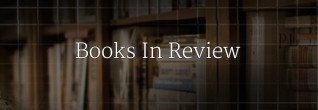The Conflict That Was A War Edited by Jim B. Money | Books in Review

Jim B. Money served as a U. S. Army sergeant with Company B of the 65th Engineer Battalion in the 25th Infantry Division in Vietnam from January 1967 to January 1968. Money is the editor of The Conflict That Was A War: In Vietnam and at Home (CreateSpace, 218 pp., $18.99, paper), an eighteen-chapter book of essays that had its origins in a PTSD group at Modesto, California, Vet Center. The essays vary in length and quality, but all are well worth reading, well written, and well edited.
“Returning military personnel were spit on, called war mongers, and child killers and harassed by their own countrymen, their fellow Americans.” This quote delivers the message we find in all the essays, often using this exact phraseology.
I have to believe that is how these veterans were treated when they returned to what we called “the World” after serving in Vietnam—the place our Greatest Generation parents chose to send us.
Why did the Greatest Generation send us there? Most of the essayists are clear about that: to stop the spread of communism. Many of the essays mention President Kennedy’s “Ask not what you can do for your country” speech. Many mention their sadness at not getting a parade after coming home, about being shamed and scorned, about not being able to get job interviews.
 Many mention Agent Orange as a cause of serious health problems. Father-son issues also are a topic, especially when the fathers made a point of telling their sons they had not fought in a “real” war. As soon as most got home, their loved ones began pressuring them to get a job, any job, and—by the way—nobody wants to hear about the war and what you did there.
Many mention Agent Orange as a cause of serious health problems. Father-son issues also are a topic, especially when the fathers made a point of telling their sons they had not fought in a “real” war. As soon as most got home, their loved ones began pressuring them to get a job, any job, and—by the way—nobody wants to hear about the war and what you did there.
I could identify. I got some of that, but mostly from my parents and their friends, seldom from strangers.
This book does a great job of giving interesting details of the jobs these men did in Vietnam: everything from medevacs to Marine Combined Action Groups. If you want to read bloody, true tales of combat action in Vietnam, this book is for you.
Be warned, though, that there is an all-pervading sense of sadness and loss—loss of friends in the war, and the loss of the way of life the men left behind when they went to Vietnam. They experienced culture shock after coming home, and there is much anger expressed at peace demonstrators and at those who fled to Canada. They are called cowards more than once in this book.
There is PTSD on every page, which is not unexpected given the book’s origins. I prescribe this book as must reading for anyone who still clings to the notion that it is a good thing to send young men and women off to war and that anything good can come from it.
I realize that this is heresy, but I believe that all of the people represented in this book would have led happier lives if they hadn’t gone to Vietnam—including going north to Canada.
—David Willson
